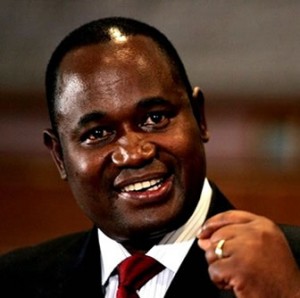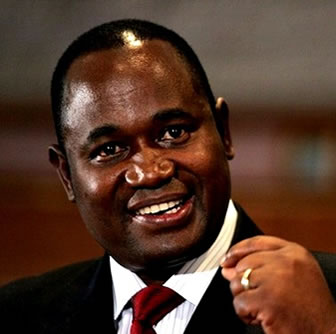
AN inquiry into the general state of the banking sector ahead of next week’s deadline for local banks to meet their minimum statutory capital requirements paints a grim picture, in which some financial institutions are treading on shifting sands while others scramble for cover through requests for extensions to the cut-off date.
Information exclusively obtained by the Zimbabwe Independent this week shows that although the banking sector remains stable under the multicurrency regime, banks are still buffeted by serious problems.
A capital verification exercise done by the central bank established that as at December 31 2010, 18 out of 26 banking institutions (including Barbican Bank but excluding POSB) were in compliance with prescribed paid-up requirements. ReNaissance, TN Bank, Kingdom Bank, ZABG, Genesis Investment Bank and Royal Bank were struggling badly.
“ZABG is critically undercapitalised with a negative core capital position of US$7,92 million as at February 28, 2011,” documents in the possession of the Independent say. “The deterioration in capital is attributed to a cumulated loss of US$7,06 million for current and prior years.
“The bank has been given to September 30, 2012 to meet minimum capital requirements following a protracted demerger process in the last quarter of 2010.”
The bank has been struggling to get its major shareholders and investors to inject capital, in vain. ZABG has requested US$5 million from the Ministry of Finance to cover its operational expenses.
Kingdom has been battling to court investors following its own demerger process. It has been engaged in discussions with an institutional investor from Mauritius for a deal to bolster the bank. Kingdom Financial Holdings Ltd, which owns Kingdom Bank, is targeting to raise US$15,5 million through a rights issue. The bank was earlier given a special dispensation to comply with minimum capital requirements of US$12,5 million for commercial banks by February 7 2012.
TN Bank’s verified core capital position at January 31 2011 was US$11,01 million, a figure below the required US$12,5 million due to insider loans. “The institution advised central bank authorities that insider loans amounting to US$1,28 million were repaid on March 31 2011. As a result the bank reported a revised exposure to insider loans of US$1,07 million as at March 31 2011, down from US$2,67 million as at January 31 2011. In addition the bank reported a net profit of US$95 493,85 as at March 31 2011.” Accordingly, the bank’s capital position increased to US$12,7 million. However, the revised capital position had not been verified by the Reserve Bank.
Royal Bank, which is looking for local and foreign investors to inject additional capital, has been given up to September 30, 2012 to meet capital requirements due to the demerger process.
Genesis Bank is trying to get foreign investors to strengthen its weak position. The Reserve Bank has approved in principle the proposed acquisition of a 93% stake in the bank by a consortium of investors led by FMB of Malawi. In the meantime, the bank has been ordered to provide additional documents to enable checks on proposed shareholders and directors to be done. It has also been asked to provide approval by regulatory authorities, including the Reserve Bank’s exchange control department, Zimbabwe Investment Centre, Competition and Tariff Commission and the Ministry of Youth, Indigenisation and Economic Empowerment.
The current controversial indigenisation regulations require companies registered and based in Zimbabwe should have at least 51% local ownership.
After concluding its Article IV consultations with Zimbabwe on June 1, the executive board of the International Monetary Fund (IMF) expressed concern about “rising vulnerabilities in the banking system”. The IMF also said indigenisation objectives must be aligned with property rights.
IMF directors stressed the need to maintain the rule of law, ensure security of land tenure, improve governance, particularly in the diamond sector, and increase the flexibility of the labour market.
The central banks of Malawi, Botswana and Kenya, which have an interest due to the positions of potential shareholders, have no issues of regulatory concern over the Genesis deal.
As at December 31 2010, 15 out of 16 asset management companies – except Premier Asset Management Company – had complied with capital requirements of US$500 000. However, microfinance banks were facing challenges of raising the minimum capital requirement of US$1 million.
The dateline for minimum regulatory capital adequacy ratio requirements – a buffer against contingency risk and a cushion for depositors against unforeseen or identified risks – is June 30. Inquiries show that some banks are not strong enough to meet their capital adequacy requirements or weather the raging financial storms threatening the sector.
ReNaissance Merchant Bank opened under curatorship on Monday, after it was recently closed due to a series of problems, that included looting of its funds and chronic capitalisation problems. The technically insolvent bank requires about US$55,1 million to comply with minimum regulatory capital adequacy requirements.
The ReNaissance crisis affected Kingdom Bank, TN Bank and Metropolitan Bank.
As next week’s deadline approaches, some banks have asked for extensions to recapitalise and shore up their core capital positions and secure mergers and foreign partners.
Previously the IMF recommended that small and weak banks be recapitalised, merged or closed.
Latest documents on the state of the banking sector seen by the Independent show that difficulties facing banks include depressed economic growth, characterised by low-capacity utilisation by industry and depressed demand against a backdrop of low disposable incomes. Banks are also struggling because of tight liquidity conditions in which they operate, mainly attributable to volatile short-term transitory deposits and limited lines of credit.
“There is also the problem of low savings due to low salaries and wages, as well as low interest income against high operating costs and low capitalisation,” the documents say.
“Although (in the long term) the resumption of the lender-of-last-resort function is envisaged to have a positive impact on the banking sector through easing of liquidity pressures, promoting inter-bank activity and facilitating increased lending to productive sectors of the economy, the situation remains difficult.”
Zimbabwe is struggling to emerge from the ravages of an economic meltdown which hit rock bottom in 2008 when the rate of hyperinflation reached the trillions. Although the economy is slow recovering, problems remain.
Total baking sector deposits, loans and advances have of late been declining. While most banks are struggling, although breaking even, six banks, including market leaders are very sound and strong.
“Six banking institutions continued to dominate the market for deposits as at April 29 2011, commanding US$1,74 billion of the total banking sector deposits, representing 62,59% of the total market deposits,” documents say. “CBZ Bank remained the highest systemic importance with market share for deposits of US$637,31 million, representing 22,98% of the total banking sector deposits.”
Royal Bank during the first quarter had the largest increase in deposits at $23,32 million although its deposit base remains low.
Agribank has secured a line of credit of US$30 million from Industrial Development Corporation of South Africa. The deal was concluded on March 18 2011. Other banks are also battling to secure lines of credit to shore up their weak positions ahead of the deadline for meeting minimum statutory capital requirements next week.
Subscribe to our Youtube Channel:

.jpeg&w=60&q=100&h=60)




.jpeg&w=60&q=100&h=60)






